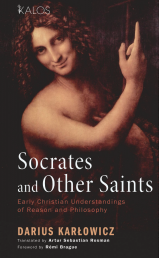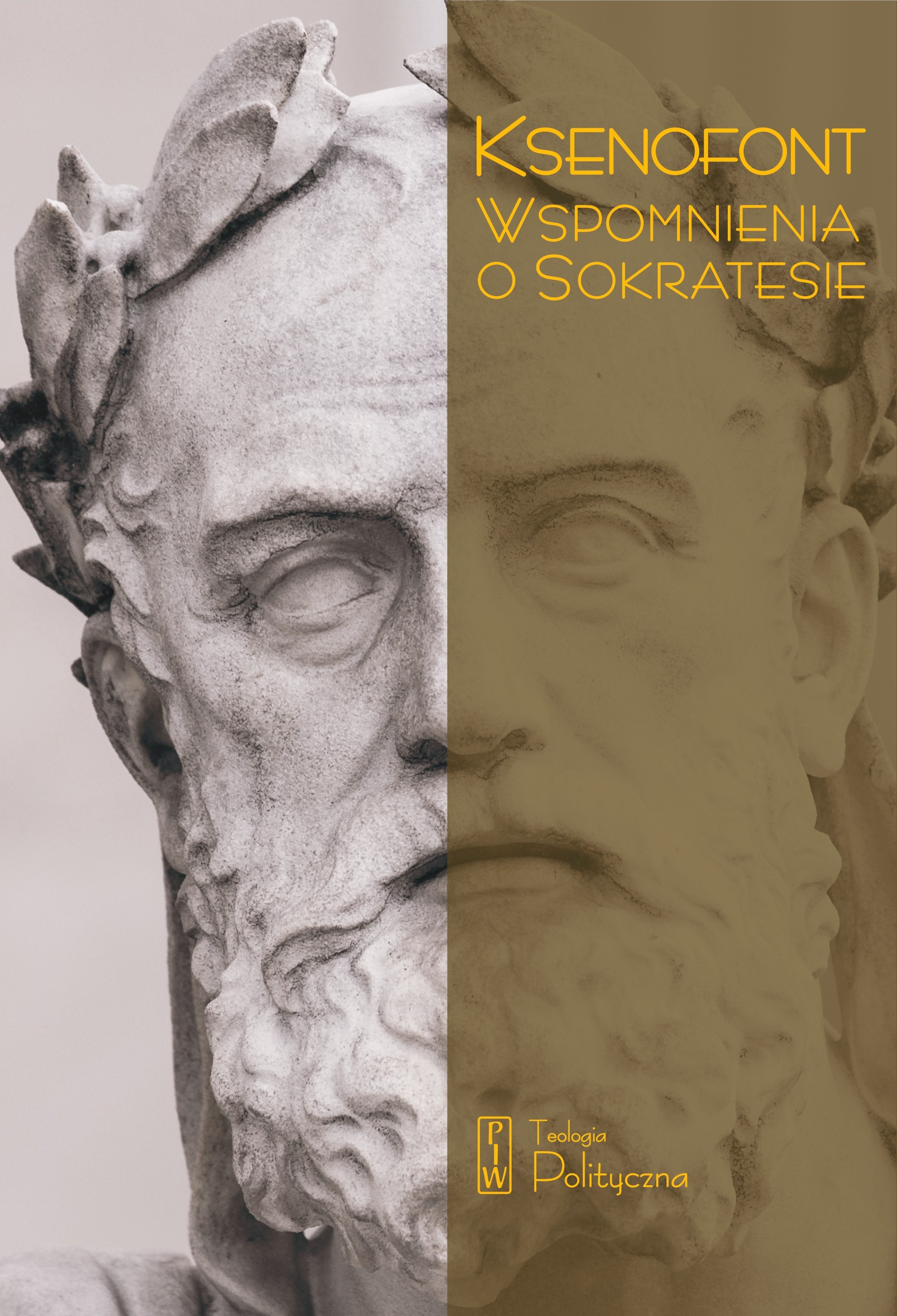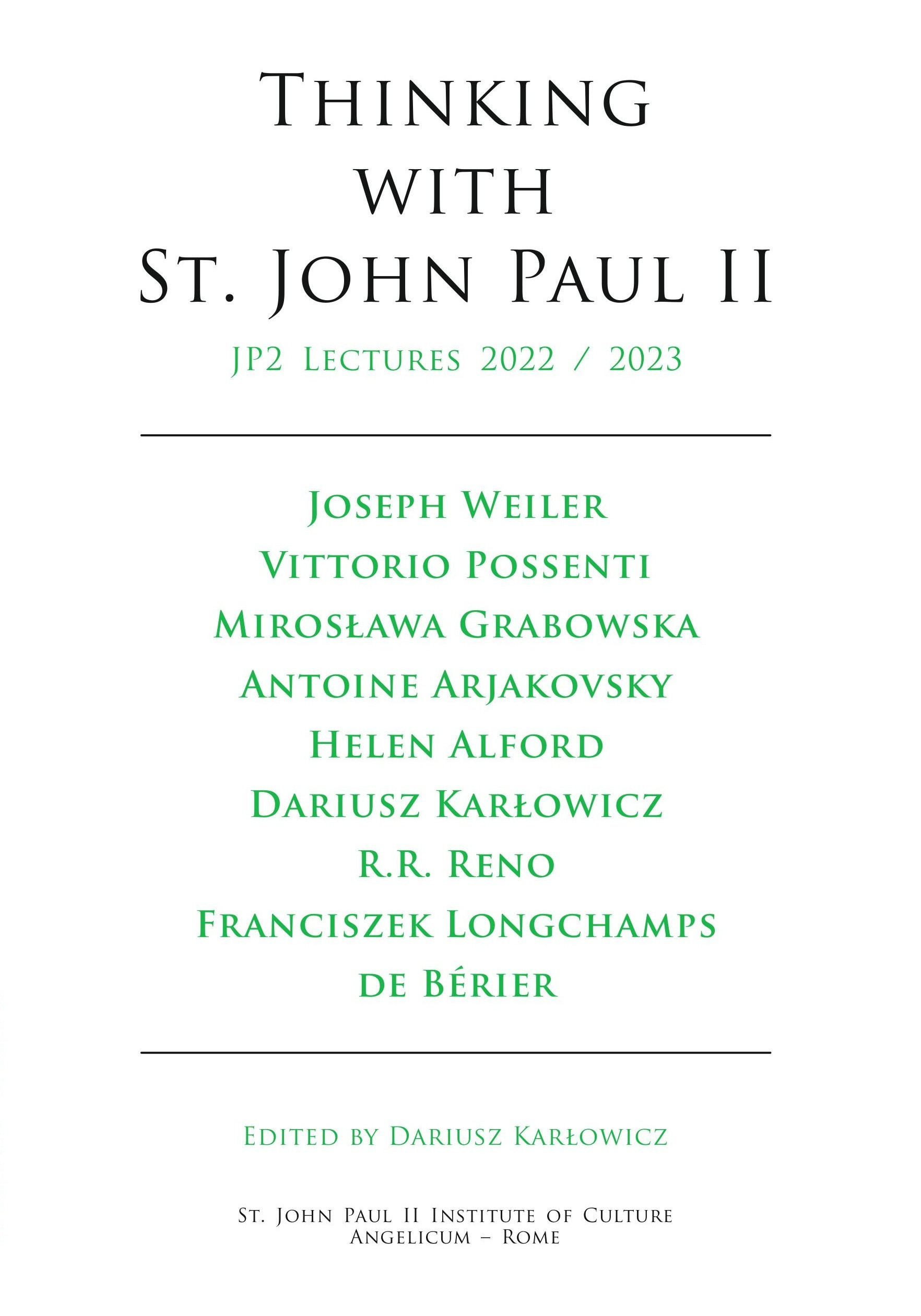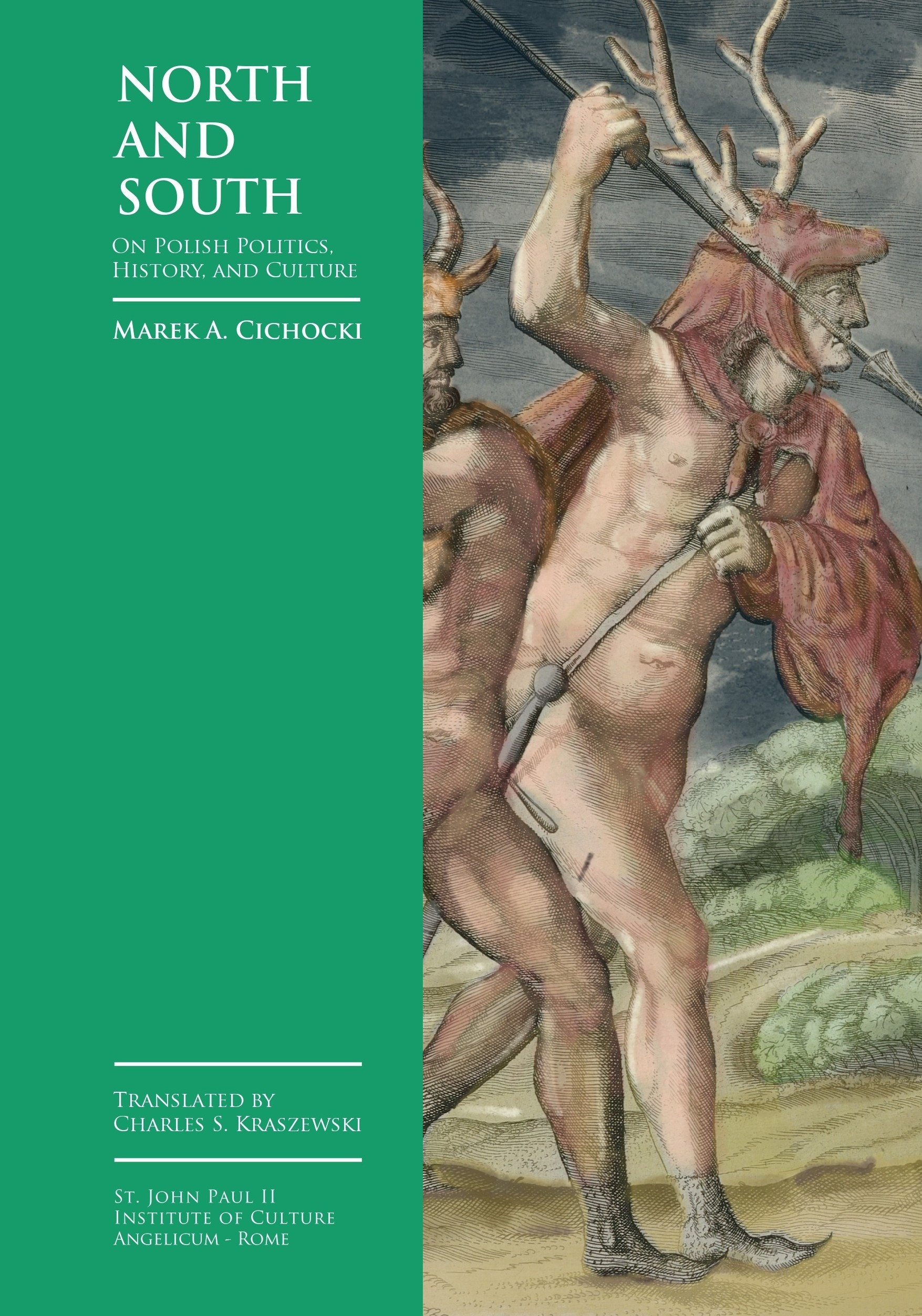Kolejna recenzja książki Dariusza Karłowicza w USA [wersja angielska]
![Kolejna recenzja książki Dariusza Karłowicza w USA [wersja angielska]](/assets/cms/ContentImage/2018/_resampled/ScaleWidthWyI5NDAiXQ/Socrates-krotki-slajd.png)
Wydane w ubiegłym roku w USA tłumaczenie książki Dariusza Karłowicza "Socrates and Other Saints: Early Christian Understandings of Reason and Philosophy" spotkało się z przychylnym odbiorem środowisk ewangelikalnych za oceanem. Poniżej zamieszczamy tekst Jonathana T. Penningtona, który ukazał się w 60. numerze „JETS” – prestiżowego biuletynu The Evangelical Theological Society.
If we made a Venn diagram with one circle being “Polish theologians” and the other, “English books exploring the different ways ante-Nicene Fathers appropriated philosophy,” both circles would be very small and the overlapping set would be empty. Until now. With his Socrates and Other Saints, Dariusz Karłowicz fills that unexpected and unique spot as a philosopher, publisher, columnist, and political theologian. In this translation of his 2005 book, Karłowicz makes a short but powerful argument about the different ways that Justin Martyr (also called “The Philosopher”), Clement of Alexandria, and Tertullian each wrestled with the Greek and Roman philosophical traditions of their day as they developed and influenced early Christian understanding and practice.
Karłowicz’s extended essay needed to be translated and published because it makes a significant contribution to a specific issue, one whose implications are deep and wide
This book is unique not only in filling this Venn set place but also as a representative of a genre not found much in our current publishing market: the extended essay. This little volume (just over 100 pages total) is not an introductory guide to the big topic of philosophy in early Christianity (as I expected it to be), but rather, makes a very specific case that extends beyond what a normal academic article can or should do. It is a tightly-packed and logical argument that would feel very long as an article but works well as an extended essay with four short chapters. That is, it works once the reader realizes that it is not an introduction but is speaking to a particular assumption within scholarship and dismantling its argument. The title did not help with my confusion as to what I was about to read (as the author himself alludes), indicating that the scope of the argument was bigger than it is. Nonetheless, I commend Cascade Books/Wipf and Stock, whose different business model as a publisher gives it the freedom to publish a slim volume like this that for sales reasons would not likely make it past the publication board at more traditional houses. Karłowicz’s extended essay needed to be translated and published because it makes a significant contribution to a specific issue, one whose implications are deep and wide.
I anticipated this book to make the argument, along with Pierre Hadot and others, that early Christianity developed by adopting and adapting the best of the Greco-Roman philosophical traditions. Karłowicz does indeed argue this, but only in route to a more nuanced and specific argument. Namely, he addresses head on the modern assumption (via von Harnack) that while some Christians adopted Greek philosophy (Justin, Clement, et al.), others stood against this and by so doing, sought to keep Christianity pure (Tertullian). Tertullian’s famous question, “What has Athens to do with Jerusalem?” becomes the rallying cry and pudding-proof for this interpretation of a supposed pitched battle in early Christianity.
Karłowicz doesn’t deny that there were differences of opinion and different tactics taken by assorted ante-Nicene theologians regarding Christianity’s relationship to the philosophical schools. But he shows with deftness and clarity that this Athens-versus-Jerusalem approach is a vast oversimplification. Instead, all the early Christian theologians did appreciate and imbibe and utilize aspects of their contemporary philosophical traditions, including Tertullian, while they also engaged in critiques and carefully selected adaptation. He distinguishes early Christianity’s stance toward reason from its stance toward philosophy: Christianity was not opposed to philosophy or rational thinking but to an undue role of reason apart from/over against faith. Karłowicz is careful to show that the Fathers did not blindly sanctify the philosophers, nor should Christians today.
Karłowicz is careful to show that the Fathers did not blindly sanctify the philosophers, nor should Christians today
In light of the obvious evidence that the Fathers knew and appreciated the intellectual heritage of their day (often marveling at the wisdom evident among the “pagans”), Karłowicz identifies three questions that must be answered and that drive the subsequent chapters of his argument. These questions are: How did Greek and Roman philosophers come to have wisdom that overlaps with the revealed truth? What truths did they come to understand? And is their philosophical knowledge still needed and helpful after the fullness of revealed truth has come through Christ?
Chapter 2 addresses the first question and shows that while Tertullian is harder on the philosophical tradition than Justin is, they both understand that the pagan philosophers’ emphasis on reason can be understood as part of the larger and fuller Christian understanding of reason and revelation, a part to the whole. Christianity’s revelatory stance does not make it irrational or opposed to reason, only to reason’s autonomy.
Chapter 3 shows how the Fathers explored the works of the philosophers, both appreciating and critiquing ways in which their views at times accorded with Christianity and at times did not. The Fathers clearly knew the philosophical tradition and they made and preserved collections of their sayings. Yet they also argued that whatever wisdom they had was inferior, especially pointing out that the philosophers’ less than virtuous lives gives the lie to their metaphysical arguments.
Chapter 4 is particularly helpful in showing how different streams of Christianity adopted and adapted different versions of the Greco-Roman philosophical commitments. Justin, Clement, and Tertullian each manifest ways in which the philosophical traditions were recontextualized according to their own needs and other commitments, resulting in different emphases within orthodox Christianity.
Certainly the greatest contribution of the book is Karłowicz’s nuanced interpretation of Tertullian. Tertullian did have many harsh words to say against Christians biting on the bait and hook of Greek philosophy; and he was certainly prone to polemical flourish. But Karłowicz shows that as a Roman, Tertullian’s sharp words against speculative philosophy were actually part of the common suspicion that Roman philosophers exercised toward their Greek predecessors. “Athens versus Jerusalem” was a slogan Tertullian used not against the good of some aspects of philosophy (such as Seneca, whom he praises) but against any Christian derivations, such as Gnosticism, which are overly beholden to Hellenization. “Tertullian was ruthless toward philosophy wherever it misappropriated the deposit of faith, but he also willingly resorted to it wherever useful.” (76) It is possible to philosophize so long as it is done in proper measure.
Philosophy is not an end in itself but is useful when employed toward the proper ordering of our loves, which will set us free. Philosophy as a goal will only lead to death, but used properly it can lead to joy
If Karłowicz is correct, and I am convinced he is, this casts vanquishing holy water on the lingering ghosts of von Harnack’s ideas that somehow the Fathers corrupted the faith via the influence of Greco-Roman philosophical categories. The Enligtenment spiel proclaimed that Tertullian was the heir of pure Christianity, seeking (mostly unsuccessfully) to protect it from the acids of Greek philosophy that resulted in catholic dogmatism and thereby despoiled the Church. Karłowicz shows that rather, the ante-Nicene Fathers had a thoughtful relationship to philosophy, neither unconditionally rejecting or unconditionally embracing it. This same stance is what Karłowicz encourages Christians to approximate today, remembering Augustine’s helpful uti and frui distinction: philosophy is not an end in itself but is useful when employed toward the proper ordering of our loves, which will set us free. Philosophy as a goal will only lead to death, but used properly it can lead to joy.
As noted, the size and title of this book did not clearly indicate to me what I was going to find. This is not an introductory guide nor the first book one should read on this important question of the relationship of philosophy and theology in the early Church. (Hadot’s What is Ancient Philosophy? deserves that place.) Every paragraph of this short book is thoughtful and even chewy; there is no fluff or wasted space. It took me a second reading to figure out what the flow of the argument was. Nonetheless, I highly commend the erudition and carefulness of Karłowicz’s work and believe that his nuanced argument here needs to be read and embraced.
Jonathan T. Pennington
Southern Seminary
Louisville, KY
Socrates and Other Saints: Early Christian Understandings of Reason and Philosophy. By Dariusz Karłowicz. Trans. by Artur Sebastian Rosman. Eugene, OR: Cascade Books, 2017, xxii + 93 pp., $17.00, paperback.
Tekst ukazał się w Journal of the Evangelical Theological Society, Jets 60, no. 3 (2017), s. 664-665
Przeczytaj, co o książce Dariusza Karłowicza pisał jej tłumacz Artur Sebastian Rosman
Ty też możesz wydawać z nami KSIĄŻKI, produkować PODCASTY, organizować wystawy oraz WYDAWAĆ „Teologię Polityczną Co Tydzień”, jedyny tygodnik filozoficzny w Polsce. Twoje darowizny zamienią się w kolejne artykuły takie jak ten, który właśnie czytałeś i pomogą nam kontynuować i rozwijać nasze projekty oraz tworzyć kolejne. Środowisko Teologii Politycznej działa dzięki darowiznom prywatnych mecenasów kultury – tych okazjonalnych oraz regularnych. Dołącz do nich już dziś i WSPIERAJ TEOLOGIĘ POLITYCZNĄ!










